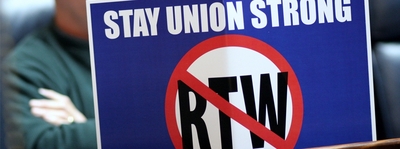New Hampshire with "right-to-work legislation could rise to number one”
New Hampshire House Republicans remind Governor that his Lynching of Right to Work last year hurt the state’s citizens and economy. From: NH House Republican Office (5/8/2012): House Leaders Comment on Chief Executive Magazine Ranking of New Hampshire Business Climate,…




